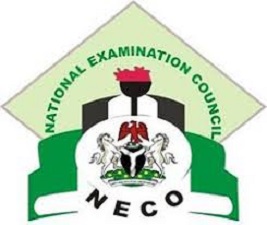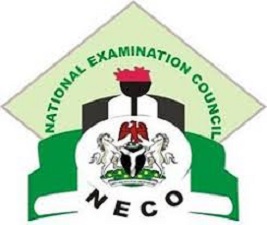NECO GEOGRAPHY PART 2 ANSWERS 2020
1a)
Optimum population is the number of people that can be supported by available resources in an area, so to achieve highest possible standard of living. It can also be defined when the available resources is equal to the total number of people in an area.
(1bi)
Overpopulation: This is a type of population when the total population is more than the available resources. Overpopulation brings together of people in an area. Overpopulation creates large labour for industries which in turn brings large market. Overpopulation creates pressure on both national resources and social resources as side effects.
(1bii)
Mortality rate: Mortality rate is also known as death rate which can be defined as the rate which people die in a country. It can be expressed in units of death per 1000 individual per year. High mortality rate will lead to low population while low mortality rate will lead to increase in population
(1biii)
Birth rate : Birth rate is also called natality rate which can be defined as the rate at which children are born or given birth to. High birth rate will lead to increase in human population while low birth rate will lead to decrease in human population.
(1biv)
Population density: It refers to the ratio of total population to total land area. It can also be defined as the number of person per unit area of land per kilometres of land.
Mathematically, Population density = total population/total land area
High population density will promote large labour for industries while low population density will provide low labour force for industries. High population density is attributed to over population while low population density is attributed to optimum or under population.
(1c)
(i) Unemployment
(ii) Increase in crime rate and social vices like prostitution, kidnapping, robbery
(iii) Traffic congestion in terms of pollution
(i) Creation of more industries and empowerment skills acquisition programme
(ii) Creation of more adequate trained security personnel and relates with technology in terms of CCTV cameras installments in all areas of the city to know everything that is going on 24/7
(iii) Expansion of roads and creation or constructing of new roads to make free and easy flow of motorist
(2a)
(i) Raw materials for industries: Through ports, raw materials are imported for industries.
(ii) Tourism: Seaports are also centres of Tourist attraction
(iii) Export of goods: Goods produced in Nigeria are exported to other countries through seaport
(iv) Import of goods: Goods produced in other countries are brought into the country through the Seaports.
(2b)
(i) Lack of natural harbours
(ii) Problem of port congestion
(iii) Inadequate port facilities
(iv) Problems caused by water weeds such as water hyacinths
(2c)
(i) Modern facilities should be provided
(ii) The seaport should be dredged regularly
(3a)
(i) Traffic congestions: Cluster of industries leads to congestions in traffic, industries and housing
(ii) Shortage of social amenities: Concentration of industries pave way for shortage of social amenities as a result of competition
(iii) Environmental pollution: It causes environmental pollution due to the presence of so many industries
(iv) Uneven development: The presence of many industries in a particular place causes uneven development especially in areas where industries are not found
(3b)
(i) Development of rural areas
(ii) Discourage rural-urban migration
(iii) increased production of goods
(iv) Increased earnings for rural dwellers
(4a)
(Draw the map well.)
(4b)
(i) Presence of trees makes it difficult for cultivation of food corps like yam, cassava, potatoes which has occupied the meant for this crop cultivation
(ii) Due to presence of tree in rain forest tract encourages lunbreing which in turn leads to soil erosion make it difficult for development of agricultural because erosion is not friendly to agricultural development
(iii) High tall tree shades and guide sunlight which gives chlorophy II to the underneath plant
(4c)
(i) Iroko
(ii) Obeche
(iii) Mahogany
(iv) White mangrove
(v) African walnut
(5a)
(i) H.E.P. (hydro electric power) hydro electric power is the generation of electricity from water. This is achieved through damming of rivers and the use of river water to turn or drive turbines. Example of H.E.P generation in Nigeria is kainji dam on river Niger Nigeria
(ii) Coal: A coal fired power station or coal plant is a thermal power station which burns coal to generate electricity, Example can be found in kogi and Enugu State with a capacity of 2000MW with 1000mw in each.
(iii) Gas fired power plant: A gas fired plant is a thermal power station which burns natural gas to generate electricity. Example can be located in Calabar with 561MW, Egbema power plant in Imo state with 338MW and Egbin thermal power station location in Egbin with 1320MW
(5b)
(i) Inadequate capital to construct and maintain power generation: Due to lack of funding by the federal government to power supply generation it affect the static power supply and makes the power supply in Nigeria to be floating
(ii) Low level of technology: Low level of technology affect power generation in Nigeria due to low level and we are still following manual method that makes it difficult to have static power supply especially in Gaseoline and coal power generation
(iii) Seasonal floating of river: the volume of river water increases during drying season and reduces during drying season makes power generation to be floating in Nigeria
(5c)
(i) Proper funding to the generation of power supply in Nigeria by adding good amount of money during budgeting
(ii) There should be adequate and proper skilled labour that can handle and execute power generation in terms of technology. Government should train his personnel technology known how
(6a)
(i) Increase in Gross national product: Industrial sector through its operations like paying of taxes,increases the earnings accruing to the country
(ii) Diversification of the economy: Industries help to prevent over dependence on only one product
(iii) Infrastructural development: The establishment of an industry in a place stimulate the development of infrastructures roads, pipeborne water, electricity and so on
(6b)
(i) Shortage of raw materials
(ii) Insufficient capital
(iii) Inadequate power supply
(iv) Shortage of entrepreneur
(6c)
(i) Good government policies
(ii) Acquisition of skills
(iii) Active government participation
(iv) Incentives to local industries




Thanks you sir about the geography part 2 answer
That’s where they will see you abass
Thank you sir God bless